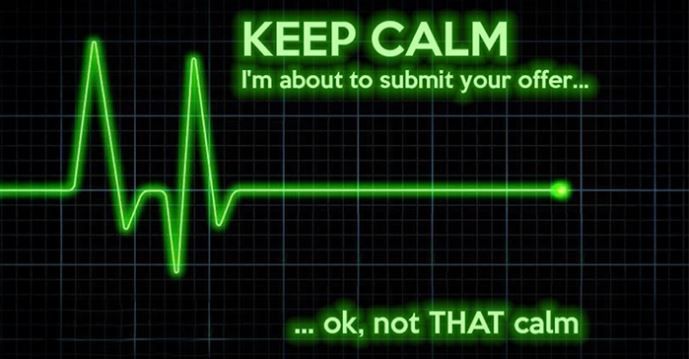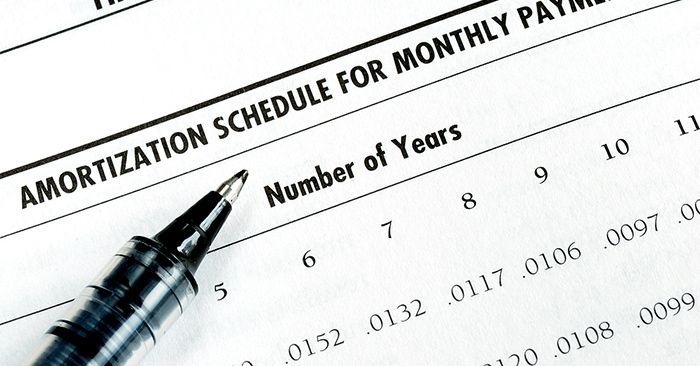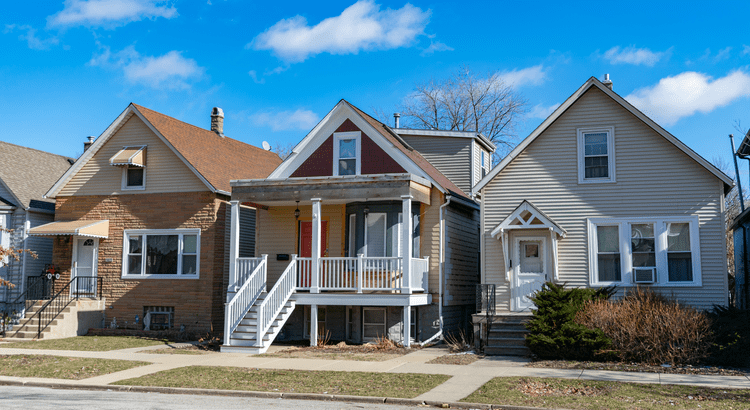How Much Should You Offer on a Home? Finding Your Regret-Free Number

For many buyers, deciding what to offer on a home is one of the most nerve-wracking parts of the process. Buyers often find themselves wondering whether they should offer more or less than the asking price.
On one hand, buyers have always wanted to snag a home at the best possible price. Who wouldn’t love the satisfaction of getting a deal? On the other hand, in recent years, many buyers have grown accustomed to bidding wars and offering above asking price just to secure a property. It’s a tricky dance between those two instincts—saving money and winning the house—and it leaves many wondering: How much should I really offer?
Whichever camp you’re in, it’d be nice to have some cut and dry guidance on when you can come in lower, when you have to offer more than asking, and even some insight into how much above or below asking you should come in with your offer.
For instance, while this recent Realtor.com article about whether to offer below or above asking price might sound promising, unfortunately it isn’t the hard and fast answer you may be looking for. The advice basically boils down to:
- If it’s a buyer’s market or the house has been on the market a long time, you can offer less than the asking price.
- If it’s a seller’s market or a brand new listing, you’ll probably need to offer more than the asking price.
- Either way, there’s no absolute answer to what you should do because it depends upon a lot of factors.
- Ask your agent for help figuring out what to offer given your specific market, and the house you’re about to make an offer on.
All of that is true, but it doesn’t really provide the answer you may be looking for. That’s because there is no absolute answer.
While you should certainly listen to your agent’s insight and advice, it’s ultimately your decision how much to offer for a house. That’s why the best strategy is to find your “regret-free” number—the price that leaves you confident no matter what the outcome.
What Is a Regret-Free Number?
Your regret-free number is the amount you’re comfortable with in every possible scenario. It’s a price you won’t second-guess if the seller rejects your offer, and one you won’t regret if the seller accepts it. Achieving this balance requires careful thought and preparation.
Think of it this way: If the seller rejects your offer, will you wish you had offered more? If so, you haven’t hit your number yet. On the other hand, if the seller accepts your offer, will you feel uneasy about paying too much? That’s a sign you’ve gone too high. Your regret-free number sits in that sweet spot where you can confidently move forward, regardless of the seller’s response.
Tips for Determining Your Regret-Free Number
It’s easy to get swept up in the excitement (or frenzy) when you find a house you want to buy. Emotions can easily override logic, especially if you find yourself in a bidding war. But whether there is stiff competition or not, the amount you are willing to pay for the house should be determined by you, not by how many other buyers are making offers, or how much the seller wants.
Whether your final offer is above or below asking, determining your regret-free number for any particular house takes preparation, research, and a clear understanding of your financial limits. Here are some steps to guide you:
- Study the Market: Work with your agent to review comparable sales in the area. These comps give you an idea of what similar homes have sold for recently, helping you assess whether the asking price is fair. While many buyers wait until they are about to make an offer to review “comps” (and some never do!), you should begin reviewing sales data with your agent early on in your home search to get a feel for market values. This will help you make a much more informed decision than other buyers who are just reviewing sales data as they’re about to make an offer.
- Consider How Long You Plan to Stay In the Home. If this is your forever home, you might be willing to stretch your budget slightly for the perfect fit. However, if you think you’ll move again in a few years, it’s wise to stay within a more conservative range to ensure you don’t overpay relative to market trends.
- Know Your Limits: A mortgage pre-approval may say that you can technically afford the payments, but only you can determine if you can do so comfortably each month. Calculate how much you can comfortably afford, not just in terms of the purchase price but also monthly payments, closing costs, and future expenses.
Deciding how much to offer on a home doesn’t have to be overwhelming. By focusing on your regret-free number—the amount you can commit to without second-guessing—you can approach the process with clarity and confidence. Do your homework, rely on your agent’s expertise, and stay grounded in both your financial and emotional priorities. At the end of the day, the right number isn’t just one that secures the house—it’s one that leaves you feeling at peace with your decision.
Partner with an agent who truly understands the local market. From the earliest stages of your search, they can educate you on property values and market trends, giving you the knowledge you need to make informed decisions. By preparing ahead of time, you’ll be able to approach offers with confidence—whether it means going above, below, or right at the asking price. The more you know upfront, the easier it becomes to navigate the process and find your regret-free number.
The Takeaway:
Deciding how much to offer on a home can feel daunting, but it doesn’t have to be. By understanding the market, doing your research, and setting a regret-free number, you can approach the process with confidence. Work closely with your agent, stay focused on your priorities, and remember that the goal isn’t to get the “perfect” deal—it’s to find a home you love at a price you’re comfortable with. When you do that, you’ll know you made the right decision.
Share this post




